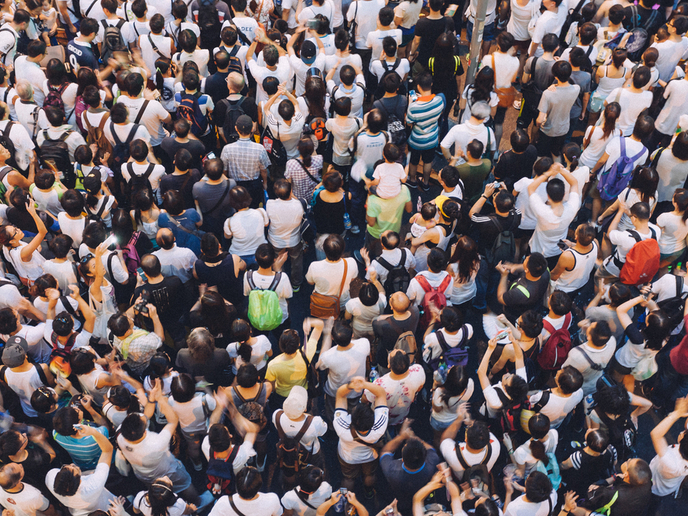Studying Hong Kong’s demand for democracy
The EU-funded DemandDemoc (Demand for Democracy) project fundamentally seeks to understand the role of personal preferences, beliefs and social interactions in spurring an individual to take part in a pro-democracy movement. Hong Kong proved to be the perfect case study. “At the beginning of our project in 2017, Hong Kong was experiencing an almost unique political tension,” explains the project’s principal investigator, Davide Cantoni from Ludwig Maximilian University of Munich(opens in new window). The Basic Law, Hong Kong’s mini-constitution, stipulated that elections would take place through ‘universal suffrage’, but it never specified when universal suffrage should be achieved. Since 1997, citizens of Hong Kong have protested every 1 July to remind their government and Beijing about the unfulfilled promises of the Basic Law. Despite the unfulfilled pledge for full democratic participation in elections, the people of Hong Kong have enjoyed many other key civil, social and economic rights, such as freedom of expression, an independent judiciary and a free press. “This again has added to Hong Kong’s uniqueness because it’s normally the case that states without universal suffrage are much more autocratic,” states Cantoni.
Some unexpected insights
The European Research Council (ERC)-supported DemandDemoc project halted their direct work in Hong Kong at the outset of the 2019 mass protests but had already arrived at some interesting and unexpected insights into what influenced an individual’s decision to engage in a pro-democracy movement. “We find that individuals consistently tend to act as ‘substitutes’: they are more likely to attend a protest march when they expect attendance to be low and are less likely to attend if they expect a high turnout,” Cantoni says. “This finding is particularly surprising because a large class of collective behaviour models would predict the exact opposite.” Additionally, DemandDemoc saw that attendance at a protest event in itself does not fundamentally modify the beliefs or political preferences of individuals. “However, individuals attending a protest are more likely to take part in future protests as well. The reason for this sustained political engagement lies in the formation of new networks with politically active friends,” he adds.
From Hong Kong to pastures new
Due to the 2020 National Security Law, DemandDemoc has been unable to continue its research in Hong Kong. “But I am happy and proud that our initial intuition proved to be correct: that Hong Kong would prove a fruitful testing ground for theories about how the demand for democracy is articulated and organised,” says Cantoni. He and his team are interested to test their findings in other settings. “DemandDemoc also highlighted how important it is for us to study ‘critical junctures’ such as revolutions and protests in real time through surveys and fieldwork,” he concludes. “Doing so allows us to not only understand our contemporary world better, but also better inform our reading of history.”







